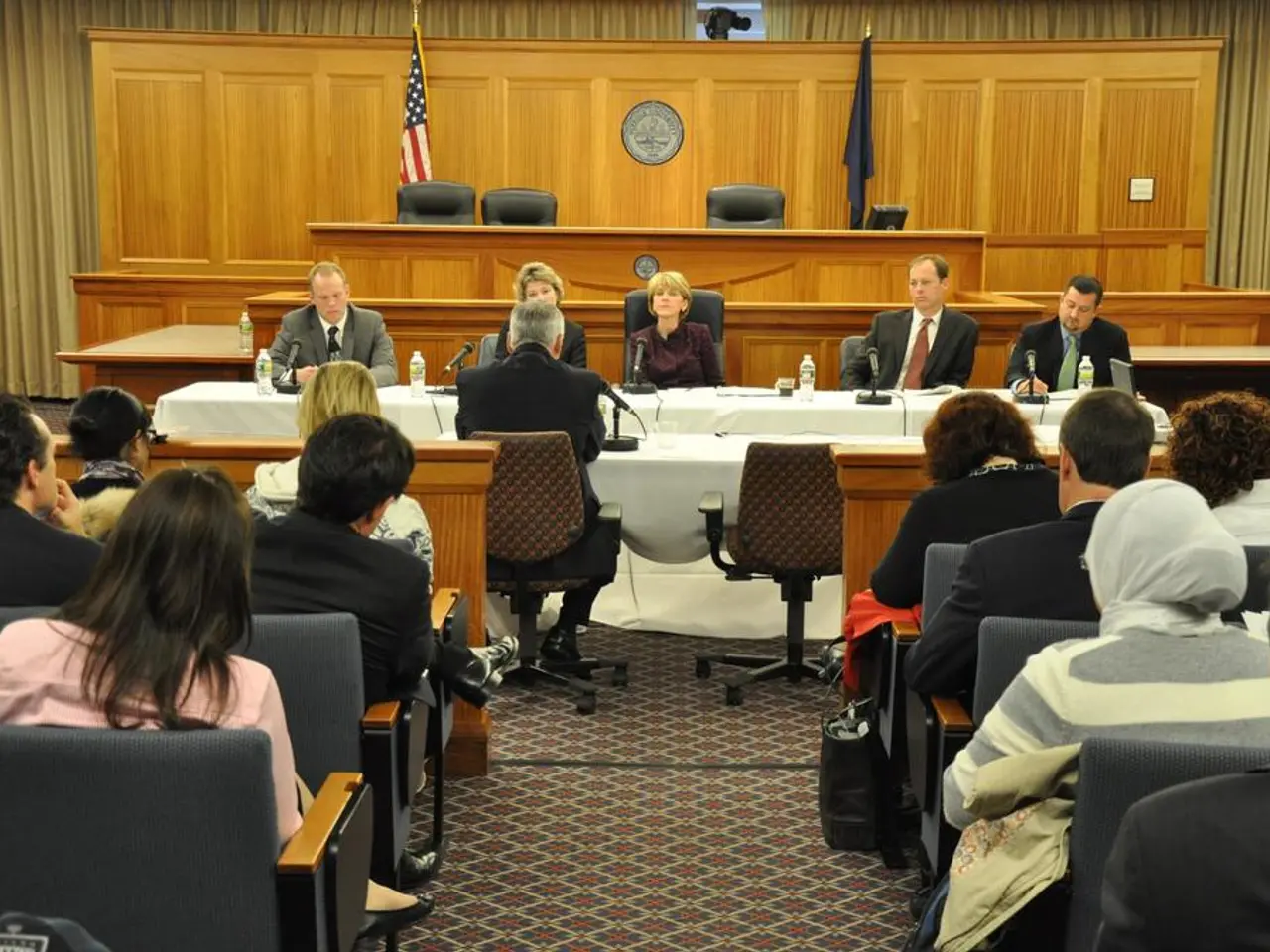Pressing for a Swift End to Trade Conflict: Reich's Plea to U.S.
Daily, Germany's economic resources dwindle due to ongoing custom disputes
Hopping across the pond, Federal Minister of Economics Katherina Reich emphasized the necessity for a prompt resolution to the ongoing trade dispute, colloquially known as the Zollstreit. "This Zollstreit is burning a hole in the German economy, leaking millions of euros daily," she declared in the heart of Washington. The unsettling situation must be swifter than a Brooklyn subway rat scampering through the city streets.
Her stateside mission, lasting until the weekend, centers around bolstering EU negotiations during a critical juncture. Reich has already held discussions with key American figures, including Finance Minister Scott Bessent, Commerce Minister Howard Lutnick, and US Trade Representative Jamieson Greer. She's also set to meet with representatives from American businesses, she asserted.
With over 6,000 German firms operating in the United States, generating around 900,000 jobs, it's about fostering growth, compelling investments, driving employment, and securing functional supply chains, explained Reich.
President Donald Trump reignited a trade war shortly after assuming office with new tariffs on EU imports. With the market whirlwind following his decision to defer certain tariffs for 90 days, the question remains: did theInsert Hamlet reference here cat nap or plot Armageddon? Regardless, the deadline looms come July 9.
The silk market is waiting for the outcome. Experts warn that the US tariff plan could push even a robust economy on the brink of recession, and political analysts see the turbulence as a considerable disruption[1][2].
Against this backdrop, Reich and German businesses find themselves in a delicate dance, tiptoeing through a trade minefield that threatens export-oriented industries and the broader German economy. In fact, the announcement of the US tariff strategy plunged the German DAX index by 10 percent, a financial fall equating to about 3,900 points. This crumble in the German market isn't a loneBattlefield 1 stumble but rather a signal of widespread tumult in global markets, with key Asian and European indices also experiencing sharp declines[3].
To put it bluntly, the Zollstreit isn't exactly the cherry on top of our export-focused sundae. It's more like the spit! On a stick. So, we're placing our hopes in diplomacy to resolve this liquorice-flavored mess, though the rosy-scented success seems slim.
References:
- Trump's Tariffs and an Escalating Trade War - The Economist
- Germany under Pressure as US Tariff Policy Threatens Export-oriented Sectors - Reuters
- The Impact of US Tariffs on Financial Markets Worldwide - Bloomberg BusinessWeek
- Navigating the Challenging Transatlantic Trade Environment - Deutsche Welle
- Expert Warnings and Fears of Recession Arising from US Tariff Policy - Foreign Affairs
- Minister Reich, in her discussions with American figures such as Finance Minister Bessent, Commerce Minister Lutnick, and US Trade Representative Greer, is emphasizing the need for a quick resolution to the Zollstreit, as it is burning a hole in the German economy and threatening export-oriented industries.
- Given the interconnectedness of industries across the globe, the ongoing trade dispute, or Zollstreit, could potentially disrupt the broader economy, not just the German one, and might pose a significant challenge to businesses in various sectors, including finance and politics.
- With the US tariff plan capable of pushing even a robust economy on the brink of recession, it is crucial for the EU's employment policy, community policy, and overall business strategy to prioritize negotiations that ensure continued growth and secure functional supply chains, as over 6,000 German firms operate in the United States, generating around 900,000 jobs.





